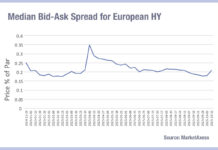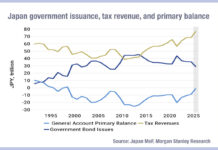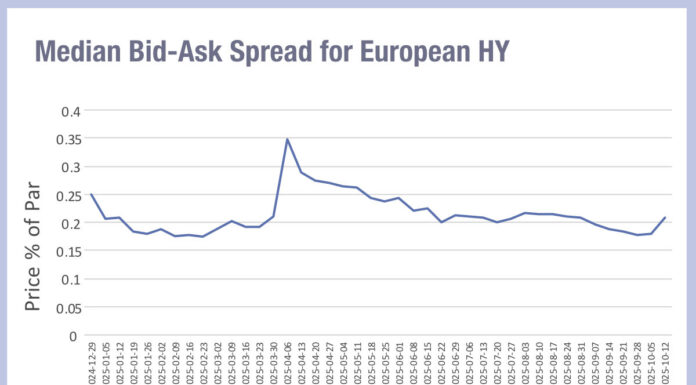A new working paper, written by the Monetary and Economic Department of the Bank of International Settlements, has found that dealer relationships are crucial to the costs of trading in bond markets.

“Clients with a strong relationship with a dealer face a sizeable 51% reduction in transaction costs relative to the median client, which maps to total annual savings of around £1.3m in transaction costs for the average top relationship client,” write the authors, Simon Jurkatis of the Bank of England, Andreas Schrimpf of the BIS & CEPR, Karamfil Todorov of the BIS and Nicholas Vause of the Bank of England.
The paper, entitled ‘Relationship discounts in corporate bond trading’, notes the importance of bilateral ties within over-the-counter markets, with the need for established dealer relationships as a method of letting buy-side clients buy or sell bonds more easily and cheaply.
“For dealers, a client relationship could be helpful for managing inventory risk, for generating larger profits from loyal clients, or for extracting information from the client’s order flow,” they wrote. “Such relationships may be particularly valuable during stress episodes like the March 2020 Covid-19 crisis.”
The paper uses ‘unique’ regulatory data sets looking at corporate bond transactions to study the bilateral trading relationships in the dealer-customer segment of the corporate bond market. The data set in question contains information about the identities of the traders, which allowed the team to us to dig into the drivers of relationships, by exploring a cross section of client types.
It looked at ‘informed clients’ whose order flow provides valuable trading signals, ‘high value clients’ who provide higher trading volume, and ‘liquidity clients’ who often supply liquidity to dealers.
“We formulate three hypotheses that could explain why relationships matter for dealers and test them in the data. Our contribution is to show that clients’ liquidity provision and the management of costly balance sheet space can help to explain why dealers value relationships with certain clients and quote them better prices. We show that relationship clients generate the bulk of dealers’ trading profits, suggesting a strong incentive for dealers to keep high-value clients as customers.”
The report concludes that the decrease in transaction costs was particularly important during stress times when the relationship discount more than doubles, and also found evidence that dealers use relationship discounts to help control their inventories, while clients who regularly help dealers to control inventories tend to receive larger discounts.
“We also find evidence that dealers give relationship discounts in order to retain clients such as asset managers that generate the bulk of dealers’ profits,” the team wrote. “We find no evidence that dealers give discounts to clients from whom they can learn private information.”
©Markets Media Europe 2023
©Markets Media Europe 2025













